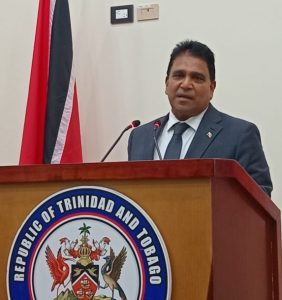THE DEATH penalty is not unconstitutional in Trinidad and Tobago.
And although it is regarded as a cruel and unusual form of punishment internationally, the death penalty will continue to be Trinidad and Tobago’s punishment for murder.
The Privy Council on Monday maintained that it was not unconstitutional and dismissed an appeal of convicted killer Jay Chandler.
The decision was given by Lord Patrick Hodge sitting in a panel of eight other law lords.
He said, “It is striking that there remains on the statute book a provision which, as the government accepts, is a cruel and unusual punishment because it mandates the death penalty without regard to the degree of culpability. Nonetheless, such a provision is not unconstitutional.”
Chandler had asked the Privy Council to rule on the death penalty. He was convicted for the murder of a remanded prisoner Kern Phillip in 2004. Seven years after the crime, he was convicted.
He lost two appeals and now serves a life sentence in prison.
The Privy Council agreed to review its prior decisions based on a 2018 ruling in the Caribbean Court of Justice (CCJ) on a Barbados case in which the CCJ held that the mandatory death penalty violated the rights protected under Barbados’s Constitution.
Chandler’s lawyers argued that the death penalty was in breach of his constitutional right to life.
However, the Privy Council stated, “The 1976 Constitution has allocated to Parliament, as the democratic organ of government, the task of reforming and updating the law, including such laws.”
Lord Hodge said, “The relevant desiderata are that retroactive laws should be avoided, that legal rules should be clear, that there should be a constancy of law through time and that there should be the correct administration of the law. These desiderata are not rules of law, but they are statements of what is obviously desirable”
He said laws before the 1976 Constitution, except the savings clause, will continue to exist as long as Parliament chooses to retain them.
The Privy Council also noted that no one has been executed since 1999, “in part because of delays in the appellate process.”
Chandler was represented by a team of attorneys led by Edward Fitzgerald,QC, Douglas Mendes, SC, Rajiv Persad and Amanda Clift-Matthews.
Representing the State were Fyard Hosein, SC, Howard Stevens, QC, assisted by Tom Poole, QC, and Hannah Fry.
![]()












